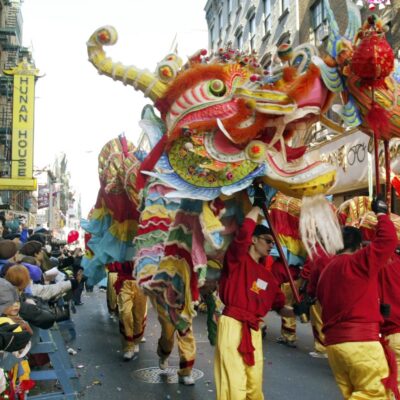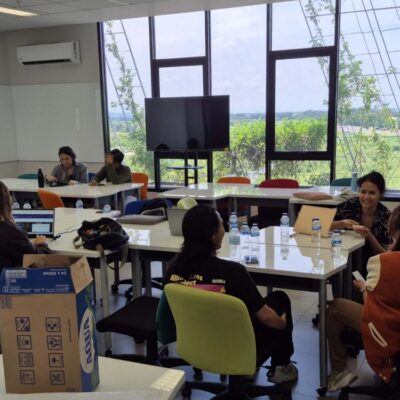For hundreds of years, Taiwan has been caught between empires. The indigenous people first encountered imperialism through colonisation under the Dutch East India Company in the seventeenth century, and Taiwan later became a geopolitical point of interest for China, Japan, and the United States. It remains so today. Although the island has largely escaped the worst horrors of war endured by Japan, China, Korea, and Vietnam in the twentieth century, its marginality amidst the competing claims of empire has led many to speculate that war is inevitable. A particularly sensationalist title in The Economist on May, 2021, famously labelled Taiwan ‘The Most Dangerous Place on Earth’ due to the threat of a Chinese invasion and Taiwan’s capacity to be the beginning of the next world war. The threat of war is certainly overstated, but the public fear of war over Taiwan in Australian media and around the world is consistently high, demanding that those interested in Asia develop a better understanding of Taiwan—its international and its domestic contexts. Understanding how different nations see Taiwan and how the Taiwanese people have redefined themselves and their ‘others’ is crucial at this time. Therefore, the articles in this edition of the Melbourne Asia Review offer revealing insight into different rearticulations of Taiwan’s ontology, examining the construction of different elements of Taiwan’s society, as well as perspectives from China, Japan and Australia.
Despite the lack of formal ties, Taiwan and Australia have a long relationship, and there are now thousands of Taiwanese in every Australian city, with the largest per capita and overall population found in Brisbane. As Mei-fen Kuo has shown in her article, the people-to-people ties that have maintained this relationship since the early days of the Cold War have transcended the political and economic foci emphasised by Canberra and Beijing. In recent years, Australians have become used to finding Taiwan’s bubble tea and fried chicken in all urban centres and Australian cafes are now appearing on the streets of Taipei, but the mutual influence goes far beyond food and drink to encompass shared values for the twenty-first century.
Three articles concentrate on identity constructions that have played crucial roles in the rise of Taiwan’s democratic and inclusive consciousness: gender, sexuality, and indigeneity. Antonia Finnane examines the role of women in politics, just as President Tsai Ing-wen is stepping down to hand the reigns to her former Vice-President, Lai Ching-te. Gender equality has long been a prominent issue in Taiwan, and Taiwan’s people take great pride in being one of the countries with the highest level of gender equality in terms of political representation in parliament. Taiwan’s track record on queer issues is similar.
Since the 1983 publication of Crystal Boys by Pai Hsien-yung, Taiwan’s literary scene has been at the forefront of the world on queer fiction. Throughout the past 40 years, Taiwan has seen consistent advances in the rights of LGBTQI+ people, including becoming the first country in Asia to legalise same sex marriage in 2019 and the first to offer full adoption rights to same sex couples in 2023. Yahia Ma discusses the extraordinary influence that such literature and consciousness have had on individuals in mainland China, which has had a more troubled but sometimes promising history of queer literature and rights.
Like Australia and other settler colonies, Taiwan has a long and violent history of oppressing indigenous people and appropriating their land. Yayut Yi-shiuan Chen offers us a detailed overview of the history of indigenous land rights, as well as current efforts to fight for rights and ancestral lands. In a similar vein, Akawyan Pakawyan, a Puyuma elder who visited Melbourne to give the Naarm Oration in late 2023 discusses the loss of indigenous languages and recent struggles for their revival in an interview with Cathy Harper. Lewis Mayo puts this history of colonisation in a comparative lens, providing a unique analysis of the epistemological bases upon which the nation has been conceived in relation to Hawaii and Aotearoa New Zealand.
Every nation and every country create narratives to define their existence, and Taiwan has been constantly redefining this narrative, often in relation to the indigenous peoples who have been subjected to successive waves of colonisation. Liping Du examines narratives of Taiwaneseness in the political sphere, considering how Ko Wen-je has packaged himself and his Taiwan People’s Party through national images to elicit emotional responses rather than concentrating on a political platform.
These investigations are important in shifting our understanding of Taiwan away from the media’s concentration on the China threat, but discussions of Taiwan must also consider the Chinese government and the Chinese people’s understanding of cross-Strait relations.
On the eve of the Lunar New Year 2024, the Peoples Liberation Army Eastern Theatre Command—the command zone responsible for retaking Taiwan—released a short video, ostensibly to convince Taiwanese of reunification. Mixing Hokkien and Mandarin lyrics, the music video showed computer-generated images of missiles landing on Taiwan to the music of a popular 1980s Taiwanese song by folk legend and politician Yeh Chi-tien 葉啟田. The title and chorus ‘We Can Only Win if We Fight for Love’ 愛拚才會贏 was replaced by ‘We Can Only Win if we Return Home’回家才會贏. Taiwan has appeared to be on the edge of war for 75 years, and it sometimes still seems that war might break out.

A screenshot from the video ‘We Can Only Win if we Return Home’ 回家才會贏
In years past, the people of Taiwan simply ignored such propaganda. While a state of panic has not set in, anxiety levels are certainly higher than they once were and recent research has often turned to the question of Taiwan’s drive to defend itself.
Lennon Chang examines this question through a study of cybercrime across the Taiwan Strait, indicating that, at least in the digital world, the war has been waged for quite some time already, whether we consider the cyber war as a precursor to or less violent alternative to actual warfare.
Phyllis Yu-ting Huang brings us away from the Chinese government’s view to consider how Taiwan appears in China’s film, literature and other popular writing, showing the considerable diversity of views on Taiwan among mainland Chinese and the constant questioning of articulations of sameness that are promoted by China’s government. As Philippa Riley shows in her review of Ian Rowen’s One China, Many Taiwans, such articulations were effective for the ideologically sheltered tour groups from China to Taiwan before the pandemic, but less so for independent tourists, whose diversity of perspectives mirrors those found by Huang in literature and film. Tets Kimura continues the cultural approach to understanding Taiwan, providing an overview of 100 years of Japanese-language Taiwan literature, showing how this history has continued into the twenty-first century to produce stunning multi-lingual writers, including the popular Li Kotomi.
Together, these articles offer a compelling purview of the change and continuity that has defined and redefined Taiwan in its marginal state, a unique situation in which it remains partially defined by the traditions of Chinese culture yet under constant threat from the larger Chinese state just a few hundred kilometres away. Taiwan has flourished in this position, developing a society that is often the envy of other liberal democracies, especially on issues of gender, indigeneity and sexuality. Despite the lack of state-to-state ties and the continued stalemate between Taiwan’s government and that of the People’s Republic of China, the Taiwanese people have developed impressive people-to-people ties with residents of countries around the world, including Australia, Japan, and people across China.
The seeming threat of war may compel academics and readers from the general public to gain a deeper understanding of Taiwan, but the dynamic and inclusive nature of Taiwan’s society also offers readers a more profound means through which they can consider their own societies. Edition 17 of the Melbourne Asia Review delivers this persuasive content through articles by excellent researchers from across Australia and around the world.
Image: A crowded subway in Taipei. Credit: David Villa/Flickr (this image has been cropped).




